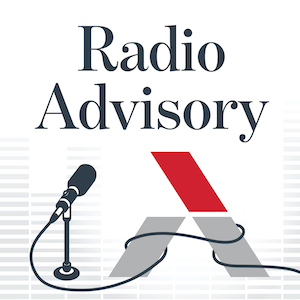Auto logout in seconds.
Continue LogoutMore than 7,000 nurses at two New York City hospitals on Monday went on strike after contract negotiations between hospital and union leaders broke down over the weekend—a development that hospitals say will place "even more strain on New York City's emergency departments and health systems during a time of crisis."
Radio Advisory episode: Henry Ford Health on nursing shortages and the real supply chain issue
Thousands of nurses begin strike in NYC
On Dec. 30, the New York State Nurses Association (NYSNA), which has roughly 42,000 union members, gave several NYC hospitals 10 days' notice of an intended strike, with their contracts expiring on Dec. 31.
In the negotiations, the union asked for better working conditions, salaries, and staffing policies for nurses. In particular, the members asked for pay raises to keep up with inflation, for hospitals to hire more nurses to combat staffing shortages, and for safer staffing ratios.
Over the last week, NYSNA reached tentative agreements with several hospitals. However, negotiations at two hospitals, Mount Sinai Medical Center and Montefiore Medical Center, broke down late Sunday night, the New York Times reports.
To avoid a potential strike, New York Gov. Kathy Hochul (D) on Sunday urged hospital and union leaders to enter into a binding arbitration to complete their negotiations. "We will continue to work with partners and all parties so that New York City hospitals can continue to play their critical role in caring for New Yorkers," Hochul said.
Although hospital leaders felt favorably about Hochul's suggestion, NYSNA was not receptive to the idea. On Monday, over 7,000 nurses across the two hospitals went on strike after the hospitals and the union failed to reach a tentative agreement.
How the hospitals are responding to the strike
In a statement on Monday, Montefiore Medical Center and said, "We remain committed to seamless and compassionate care, recognizing that the union leadership's decision will spark fear and uncertainty across our community."
Similarly, Mount Sinai officials said the strike places "even more strain on New York City's emergency departments and health systems during a time of crisis." To avoid potential care disruptions and other problems as much as possible, hospital leaders began strike preparations several days in advance.
At the hospitals, staff members have discharged as many patients as they safely could and have diverted ambulances to other hospitals in the area. For the duration of the strike, two Mount Sinai hospitals will only run inpatient services, and one hospital will operate as a free-standing ED and inpatient psychiatry unit.
The hospitals affected by the strike have also moved some of their most vulnerable patients, including newborns in the NICUs, to other hospitals and helped cancer patients find other treatment locations. More travel nurses have been brought in to cover those on strike, and some services, such as elective surgeries, have been postponed so the remaining staff can care for other patients.
"Our first priority is the safety of our patients," said Mount Sinai in a statement. "We're prepared to minimize disruption, and we encourage Mount Sinai nurses to continue providing the world-class care they're known for." (Kilgannon/Goldstein, New York Times, 1/9; Neber, Crain's New York Business/Modern Healthcare, 1/5; Chen, Axios, 1/6; Coleman-Lochner, Bloomberg, 1/5; Isidore et al., CNN, 1/9; Dreher, Axios, 1/9)
Listen to the Radio Advisory episode
One of the biggest challenges healthcare leaders are grappling with is the workforce shortage, particularly in nursing. This isn’t a new problem, so why haven't we found real solutions?
Host Rachel (Rae) Woods invites Henry Ford Health System's Vice President and Chief Innovation Officer Lisa Prasad and Senior Vice President and Chief Nursing Officer Eric Wallis to discuss why we need to look at the nursing shortage as a supply chain issue and what can be done both in short-term and long-term.
Don't miss out on the latest Advisory Board insights
Create your free account to access 1 resource, including the latest research and webinars.
Want access without creating an account?
You have 1 free members-only resource remaining this month.
1 free members-only resources remaining
1 free members-only resources remaining
You've reached your limit of free insights
Become a member to access all of Advisory Board's resources, events, and experts
Never miss out on the latest innovative health care content tailored to you.
Benefits include:
You've reached your limit of free insights
Become a member to access all of Advisory Board's resources, events, and experts
Never miss out on the latest innovative health care content tailored to you.
Benefits include:
This content is available through your Curated Research partnership with Advisory Board. Click on ‘view this resource’ to read the full piece
Email ask@advisory.com to learn more
Click on ‘Become a Member’ to learn about the benefits of a Full-Access partnership with Advisory Board
Never miss out on the latest innovative health care content tailored to you.
Benefits Include:
This is for members only. Learn more.
Click on ‘Become a Member’ to learn about the benefits of a Full-Access partnership with Advisory Board
Never miss out on the latest innovative health care content tailored to you.


